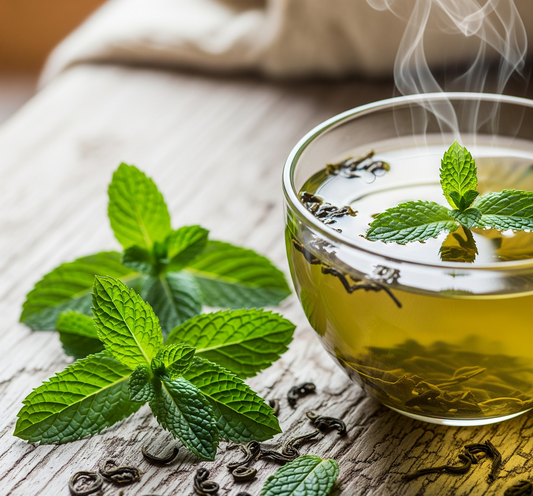As history is riddled with multitudes, there are many legends surrounding the origin of tea. The oldest of them all take us to China at around 2700 BCE.
Legends of origin of tea

The most famous story being of an accidental discovery. Emperor Shen-Nung’s entourage set up camp under the shade of a large tree. When a pot of boiling water was prepared over a fire. The heat is said to have dried the Camellia Sinensis leaves only to fall on the water itself. The golden water tempted Shen-Nung, who upon tasted the tea and felt invigorated from the fatigue of his travels.
History of tea
Whether the legends are true or not – for there are other similar but little different stories told– for millenia, tea was used only as a medicinal beverage. It wasn’t until the 3rd century that the beverage became a daily staple.

Tea accessories and containers have been found dating back to around 206 BC. The earliest known physical evidence of tea was discovered in 2016 in the mausoleum of Emperor Jing indicating that tea was drunk as early as the second century BC.
Tea cultivation and processing began in China and slowly spread all over the world.
Tea around the world
The beverage we know as tea reached Japan as early as the 8th century through Buddhist monks and priests. Tea became a drink of the religious classes when priests and envoys sent to China to learn about its culture came back with tea knowledge.

Buddhist monks are also believed to have introduced systemic planting of tea bushes according to Chinese tea culture in Korea. It is believed that a proper tea culture was established in Korea during the Three Kingdoms period (57 BC- 668 AD).
Tea was first introduced to the Western world through the western priests and merchants in China during the 16th century. By that time, the beverage had already gotten it’s name as cha. The first ever recorded shipment of tea to Europe dates to 1607 AD by a Dutch East India Company. Tea’s first venture into the European world came through the Netherlands and it slowly moved across the map to Germany, France and finally to America.
Tea and America
In America, tea became a turning point in the revolution. Tea drinking and tea parties held a significant role in colonial American society. In the early 18th century, tea became popular in America. It was such a lucrative business that British Parliament passed the Tea Act, granting the British East India Company a monopoly to sell tea throughout the American colonies undercutting the business of local merchants.

This act intended to raise revenue in the American colonies, raised the rebellion spirit instead. On December 16, 1773, the Boston Tea Party was born and rest as they say is history.




